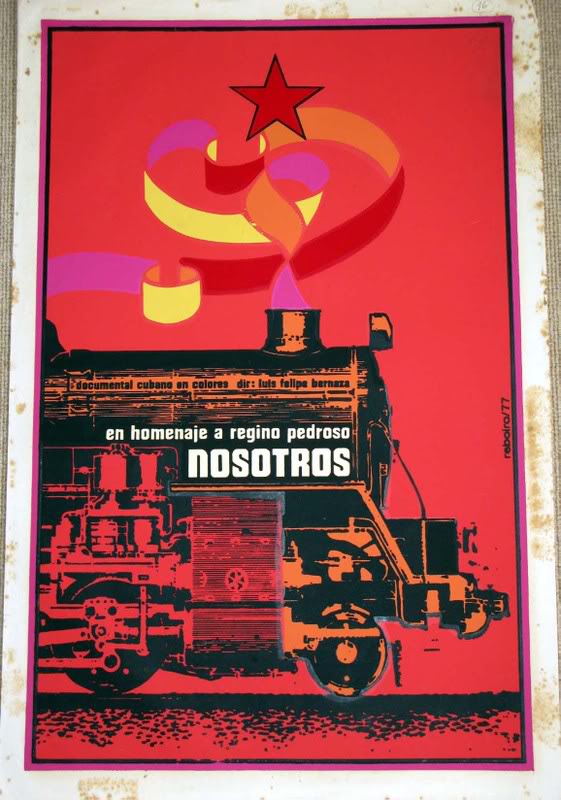4.1.1.10.3 The poetic text “Nosotros”, 1926 – 1933, by Regino Pedroso

This text, from an aesthetic and ideological perspective, realizes the concerns previously expressed by Regino Pedroso in his poem “Salutación fraterna al taller cochera” (Fraternal Salutation to the Mechanic’s Workshop), which are also included in this exhibition. From an artistic perspective, the collection of poems has important points of contact with avant-garde movements in terms of the use of vocabulary and rhetorical devices; but its spirit is deeper in terms of the understanding of its circumstances, going beyond mere verbal play.
From an ideological point of view, the collection of poems expresses the political position of the author, who was emotionally connected to the revolutionary movement. He infused his poetry with a thematic spirit practically unprecedented in Cuban poetry, revealing his concept of the revolutionary function that art and the artist should have.
The author expresses his position on this serious issue in the prologue: “We believe in the goodness of art as the supreme manifestation of beauty; but we only understand and justify its usefulness, its reason for eternity, when it tends to reflect and interpret the anxieties, dreams, longings, and concerns of large groups of people.”
In a way, Pedroso disdains the aesthetics of purism with its intentional detachment from national contingencies, its lingering in a world of only words and verbal arabesques, of only emptiness; his poetics constitutes, in this sense, explicit revolutionary propaganda, stirred to its core by the flame of national rebellion, and within it, the worker as maker, in the place of God, “above the machines,” forging a different society.
The text also expresses a defined anti-imperialist position, but not from a superficial analysis. Rather, its thinking is anchored in its historical context, in a broad knowledge of the republican political springs and their impact on the status of man, especially the proletarian sector, although it does not fail to delve into other social strata with a humanism that goes beyond the boundaries of the immediate.
Although Pedroso had already demonstrated considerable aesthetic successes in his early modernist works, including his work in the compilation “Modern Poetry in Cuba (1882–1925)” by Félix Lizaso and José Antonio Fernández de Castro, and politically demonstrated an avant-garde ideology, it is clear that he had not yet been able to fully master this theme in his poetry, something that he would, however, gradually consolidate as he refined his lyrical register.








